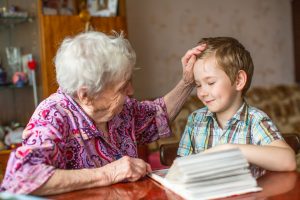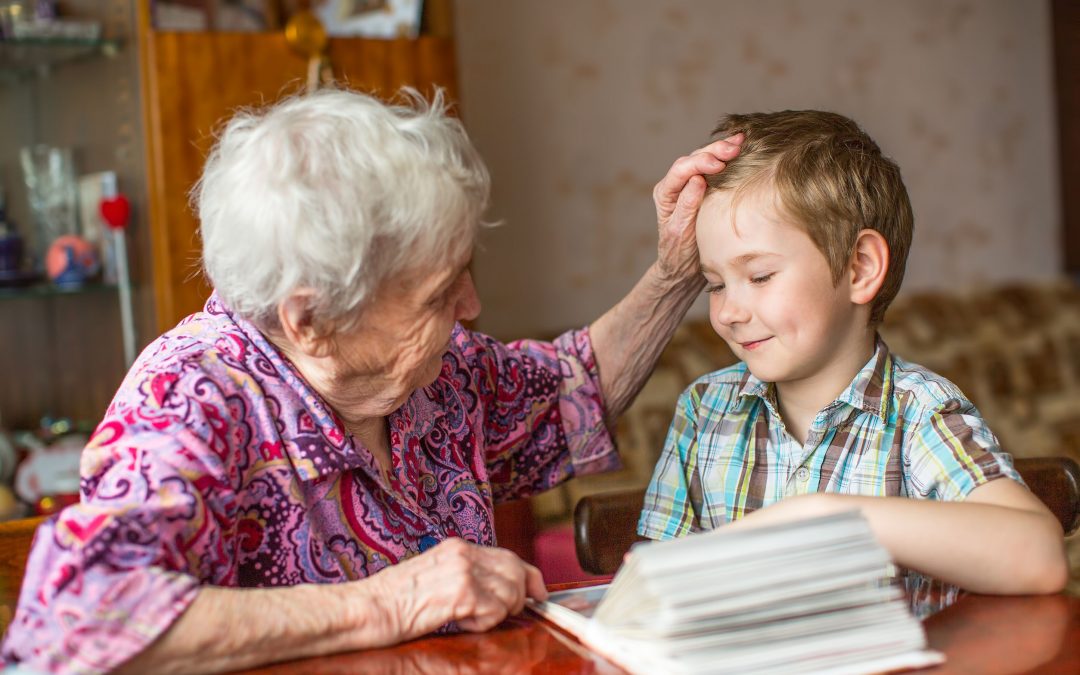 You know how it is when you get involved in a great conversation—the stories just keep flowing easily, playing off one another, teaching you a little bit more about the person you are talking with and revealing a little bit about who you are and what you think and feel. It’s one of the best feelings out there when you are really able to communicate with someone and share with other people, and that’s true no matter your age.
You know how it is when you get involved in a great conversation—the stories just keep flowing easily, playing off one another, teaching you a little bit more about the person you are talking with and revealing a little bit about who you are and what you think and feel. It’s one of the best feelings out there when you are really able to communicate with someone and share with other people, and that’s true no matter your age.
But storytelling has value beyond being fun and feeling good. It can have a major impact on seniors with conditions like dementia that affect memory, from the physical to the emotional. Part of why storytelling feels so good is because it’s so mentally stimulating. You’re simultaneously listening, formulating a response, finding the right words, emotionally reacting, paying attention to the other person’s facial and body language cues, and are also awash in emotions like happiness, laughter, concern, and more. That can be especially valuable for those who are going through the cognitive changes associated with diseases like Alzheimer’s.
Anyone with a loved one with a memory condition knows that confusion, memory loss, and frustration can accompany dementia, and that in turn can lead to personality changes, social withdrawal, and even anxiety and depression. Storytelling is a way to combat all these aspects of dementia at once, by providing a socially stimulating, low-stress method of conversation, that also boasts major cognitive benefits.
Instead of relying on memories that might not be readily available for conversation, which many of us are used to doing without thinking about it, storytelling provides opportunities to share through imagination and the hypothetical. It also lets seniors try on different roles in a safe way, without always being held to one that might not be so easy to connect to or fulfill if struggling with dementia.
Storytelling can take different forms. Look to all kinds of arts, and follow your loved one’s lead. You might be surprised to see a withdrawn senior slowly take to very social forms of expression like comedy or dance, or to see someone who was having trouble with verbal communication find an affinity for spoken storytelling based on visual prompts. Studies show that, whatever the form of storytelling you choose, the process of making associations with past situations can help connect seniors to their history, even if the memories aren’t concrete. For example, a woman with Alzheimer’s who is having trouble putting names to faces, might remember the feelings and routines associated with motherhood, and might talk about her experiences as a mother, if shown a photograph that invokes that bond.
This type of memory therapy is not only good for seniors, it’s also great for caregivers, who can discover anew that their loved one still has rich experiences to share, though they might take a different form or a more roundabout path to the surface. Studies show storytelling can have a positive effect on the quality of care offered by not only retirement community professionals but families, too. When we share and communicate with one another, everyone wins!
Written by: Meghan O’Dea

